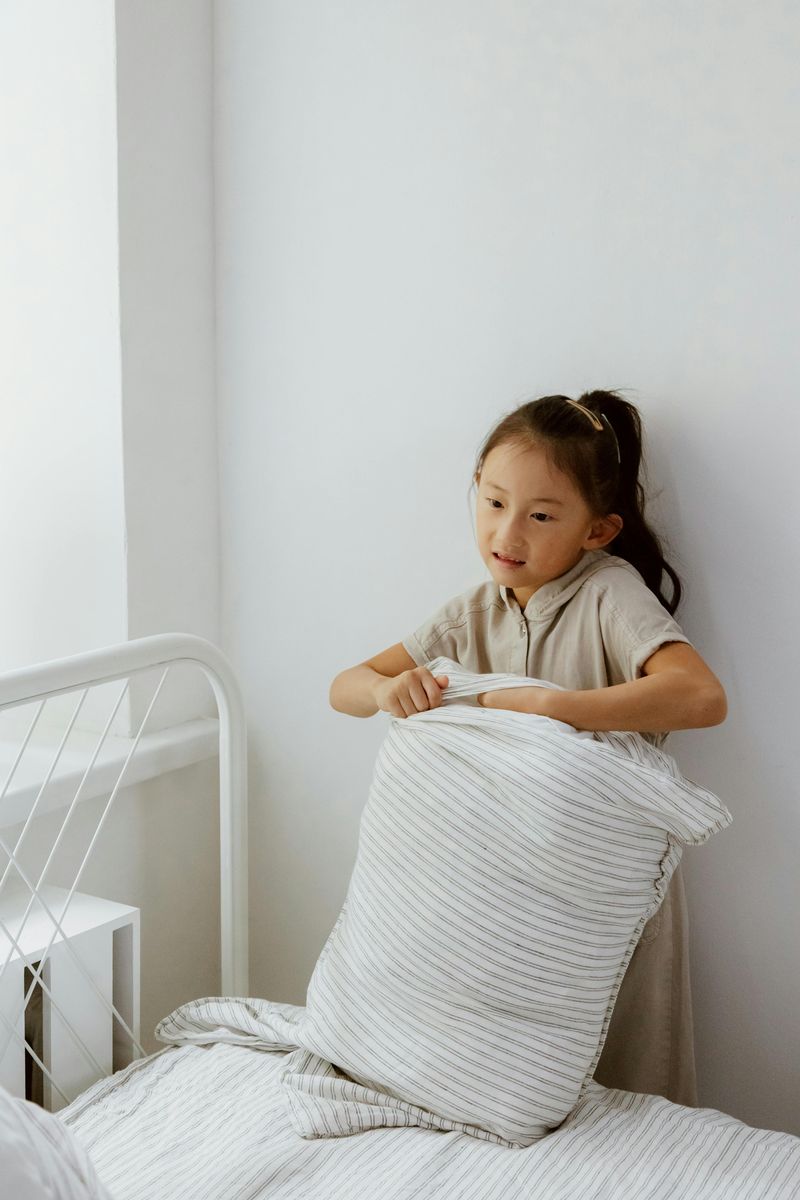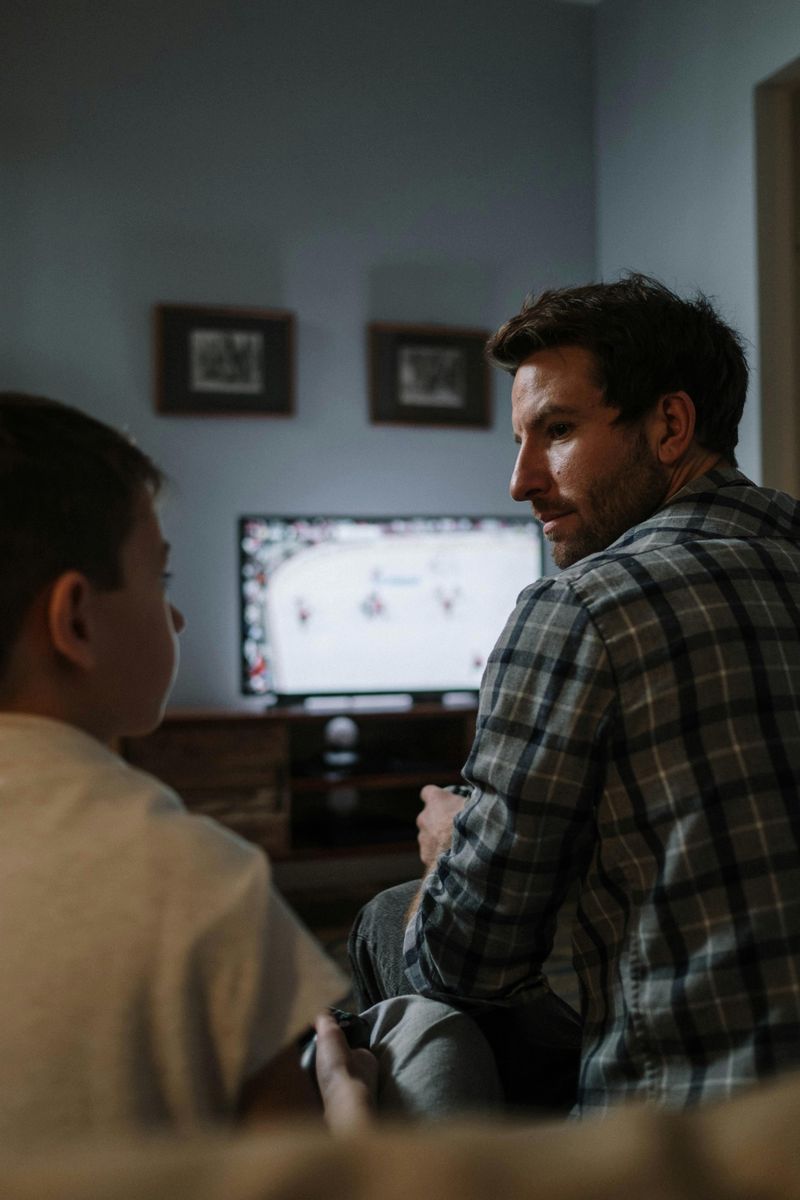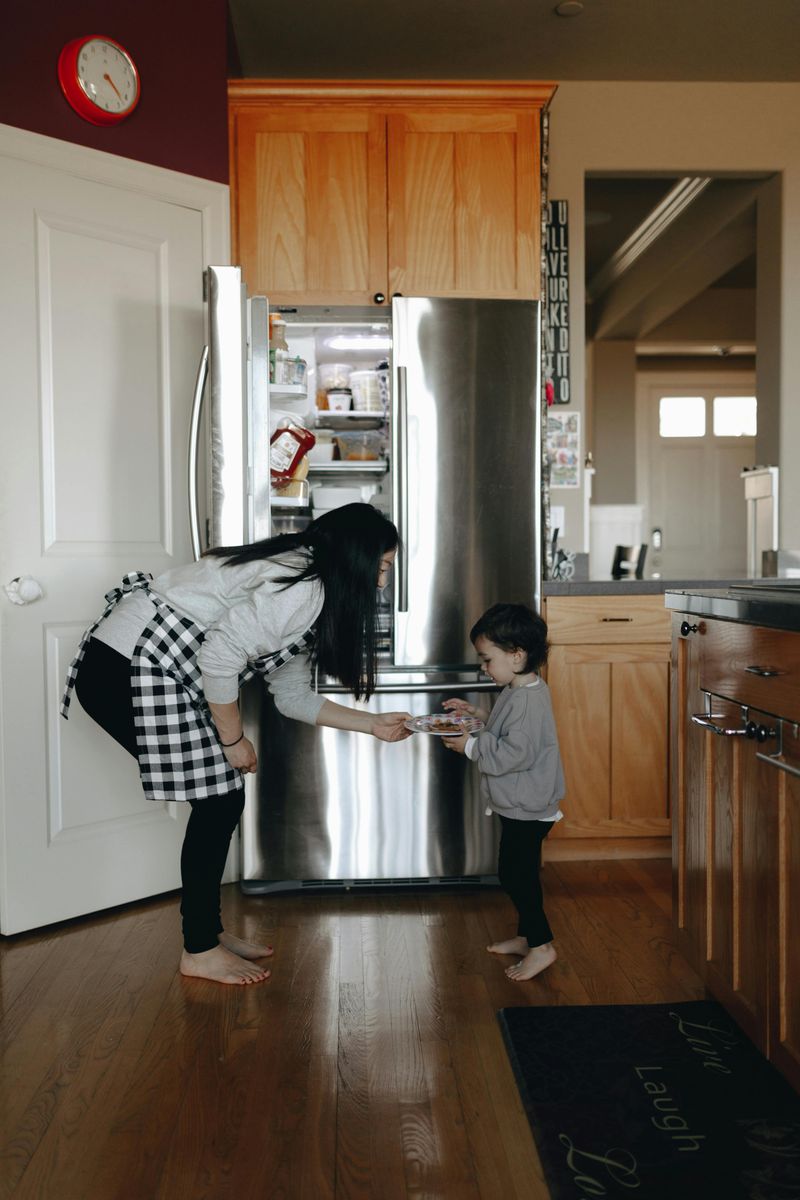13 Strange Childhood Rules That May Have Shaped Your Adult Self

Remember those weird rules your parents enforced when you were little? The ones that made no sense at the time but somehow stuck with you into adulthood? Those quirky household laws weren’t just random parental torture devices. They actually helped shape who you are today, influencing everything from your eating habits to how you organize your sock drawer.
1. No Shoes on the Bed

At first glance, the “no shoes on the bed” rule felt like a simple cleanliness thing—but to your parents, it was also about boundaries and routines you didn’t yet understand.
Fast forward to adulthood, and you’re likely the person who creates a mini-meltdown when your partner sits on the bed in outside clothes. The rule teaches boundaries between clean and dirty spaces.
Many adults who had this rule now maintain clear zones in their homes where outside contamination isn’t welcome. Your friends might laugh, but your immune system thanks you!
2. Don’t Talk to Strangers

‘Don’t talk to strangers’ was drilled into most of us as a safety measure. The rule served its protective purpose during childhood but might have unexpected adult consequences.
Research suggests adults raised with strict stranger-danger rules sometimes develop heightened social anxiety or difficulty initiating conversations in professional settings. That hesitation when approaching new people at networking events? Possibly connected to your childhood programming.
On the flip side, some adults overcompensate by becoming extremely outgoing, deliberately breaking the rule that once constrained them. Your networking style today might be directly influenced by how strictly this rule was enforced.
3. Clean Your Plate or No Dessert

Finishing every last pea before earning dessert was meant to teach appreciation and prevent waste, but for many, it also planted early seeds of food guilt or control.
Adults raised with this rule often struggle to recognize fullness cues, feeling compelled to finish everything regardless of hunger. Some become the office ‘human garbage disposal’ who never wastes food.
Others develop rebellious eating patterns, secretly thrilled to leave food on their plate now that they make their own rules. Either way, that simple dinner table mandate follows you to every restaurant meal decades later.
4. No Elbows on the Table

The battle against table elbows seems almost comically old-fashioned today. Your grandmother might have swatted your arm down while explaining this was ‘proper etiquette,’ though she likely couldn’t explain why.
Today, you might find yourself automatically judging others’ dining postures or sitting ramrod straight during important business lunches. The rule originated from medieval times when table space was limited, yet somehow persisted through generations.
Adults who had this rule enforced often display heightened awareness of social expectations and unwritten rules. You’re probably the one who notices when someone uses the wrong fork at fancy dinners—even if you never comment on it.
5. Say ‘Bless You’ After Sneezes

The automatic ‘bless you’ response was likely non-negotiable in your childhood home. Originally stemming from ancient superstitions about souls escaping during sneezes, this peculiar social obligation somehow survived into modern times.
Adults conditioned with this rule often feel genuine discomfort when someone sneezes in public and nobody acknowledges it. You might find yourself blessing complete strangers in elevators or during movies, unable to suppress the deeply ingrained response.
The compulsion reveals how effectively we internalize social courtesies, even those with no practical purpose. Your brain now treats this meaningless ritual as a moral obligation—proof of how thoroughly childhood programming sticks.
6. Never Waste the Last Bit of Toothpaste

For parents shaped by harder times, frugality became a family value—down to the last squeeze of a toothpaste tube, which was never replaced until completely emptied.
Now as an adult, you probably find yourself cutting open containers to scrape out remnants. Your partners or roommates might be baffled watching you perform surgery on an empty lotion bottle.
This childhood conditioning creates adults who experience genuine discomfort throwing away usable products. The upside? You’re environmentally friendly by default and probably have impressive savings habits, all because someone once lectured you about wasting Crest.
7. No Reading at the Dinner Table

Families that banned books, phones, or other distractions during meals were fighting for a principle: mealtime is for connection. Kids who complained about this rule couldn’t possibly understand its purpose until adulthood.
Years later, you might find yourself irritated when dining companions check their phones. The rule instilled values about presence and attention that become increasingly countercultural in our distraction-filled world.
Adults raised with strict mealtime etiquette often become the relationship partners who insist on device-free dinners. Your childhood dinner table rules quietly shaped your expectations for meaningful connection and what constitutes respectful behavior during shared meals.
8. Make Your Bed Every Morning

The daily bed-making ritual seemed like pointless torture as a child. Why make something that would just get unmade again? Your protests fell on deaf parental ears.
Research now suggests this habit creates a small accomplishment that sets a productive tone for the entire day. Adults who were forced to make their beds often become people who value order and routine.
Your current morning ritual might directly trace back to those childhood battles. Even if you rebelled against the rule temporarily during college years, many adults find themselves mysteriously drawn back to this habit. The satisfaction of a neatly made bed creates a foundation for other organized behaviors throughout your life.
9. No Swimming Until 30 Minutes After Eating

The dreaded half-hour waiting period after lunch before returning to the pool was standard in most families. Kids sat impatiently counting minutes while parents insisted this prevented deadly cramps and drowning.
Medical science has largely debunked this myth, yet adults raised with this rule often find themselves automatically enforcing the same waiting period with their own children or nieces and nephews. The rule persists across generations despite lacking scientific basis.
This particular childhood rule demonstrates how readily we accept and internalize information from authority figures without questioning its validity. Your tendency to follow other health guidelines without verification might stem from these early unquestioned rules.
10. Write Thank-You Notes for Gifts

Forced gratitude through mandatory thank-you notes seemed like cruel punishment after birthdays and holidays. Sitting at the kitchen table writing to relatives you barely knew felt like the ultimate childhood chore.
As an adult, you likely fall into one of two camps: either you’ve maintained this practice religiously, believing handwritten notes represent true appreciation, or you’ve rejected it entirely. Few people feel neutral about thank-you notes.
The rule teaches more than gratitude—it instills awareness of social reciprocity and obligation. Adults who were strictly trained in formal appreciation often have heightened sensitivity to social debts and credits in all relationships, sometimes tracking who owes what to whom.
11. Don’t Interrupt When Adults Are Talking

Being shushed when adults were speaking created a clear hierarchy in your childhood home. The message was unmistakable: adult conversations matter more than children’s thoughts.
This rule shapes adult communication patterns in fascinating ways. Some grown-ups who weren’t allowed to interrupt become exceptional listeners, waiting patiently for their turn to speak. Others overcompensate by becoming chronic interrupters once free from childhood constraints.
Your current conversational style—whether you patiently wait for pauses or jump in mid-sentence—likely reflects how strictly this rule was enforced. Office meeting dynamics often reveal who grew up with this rule and who didn’t, creating interesting power dynamics in professional settings.
12. Don’t Sit Too Close to the TV

Parents dramatically warned that sitting too close to the television would damage your eyesight forever. You were physically moved backward if caught creeping toward the screen during Saturday morning cartoons.
While old CRT televisions did emit minor radiation, modern screens pose no such risk. Yet adults raised with this rule often maintain a specific “proper” viewing distance from screens.
The rule’s lasting impact isn’t about eye health but about moderation with technology. Those who had screen time strictly regulated often develop more conscious relationships with digital devices as adults. Your current habits around screen breaks and digital boundaries likely connect back to how your family managed television exposure.
13. Close the Refrigerator Door Quickly

Standing with the refrigerator door open while deciding what to eat was guaranteed to summon parental outrage. The urgent cry of “You’re letting all the cold air out!” would echo through kitchens nationwide.
This energy-conscious rule actually does have practical merit. Adults conditioned with this rule often become the household energy police, monitoring thermostats and flipping off unnecessary lights.
Your current environmental habits and utility bill vigilance connect directly to these early conservation lessons. The refrigerator rule represents a broader category of household energy restrictions that shape adult attitudes toward resource consumption. You might find yourself automatically calculating the cost when someone leaves electronics running unnecessarily.

Comments
Loading…